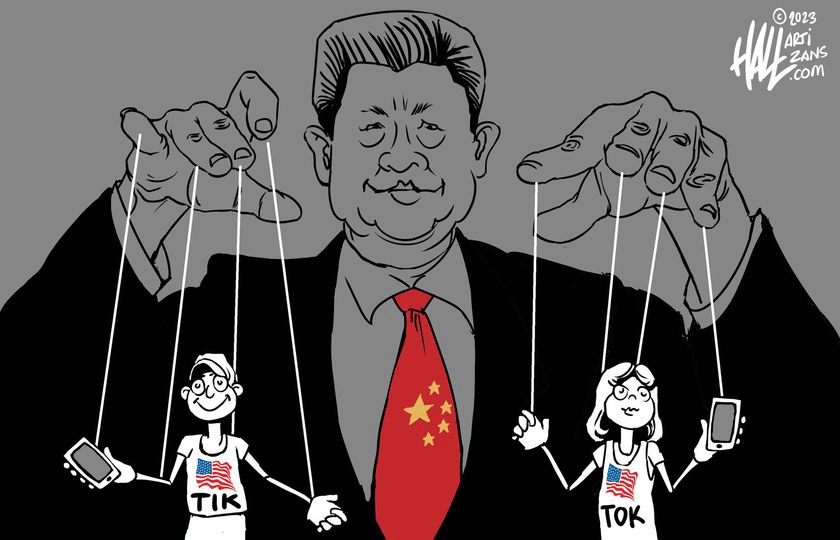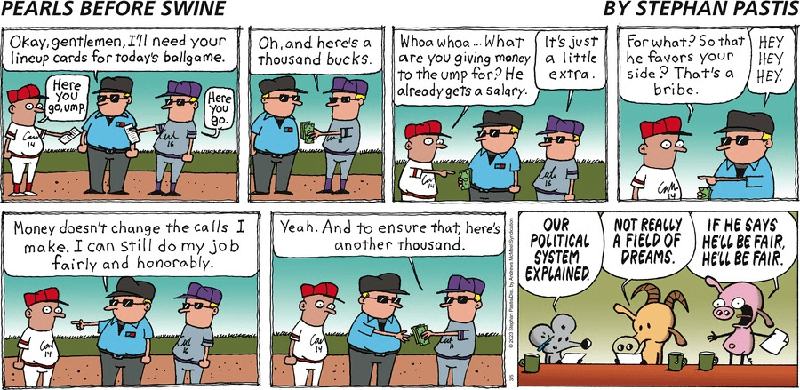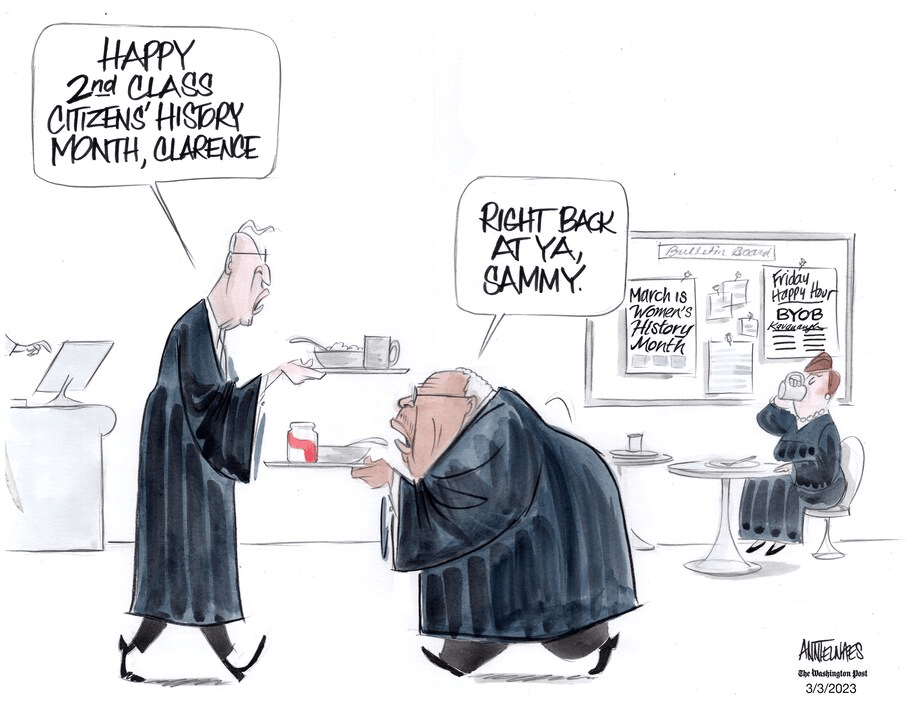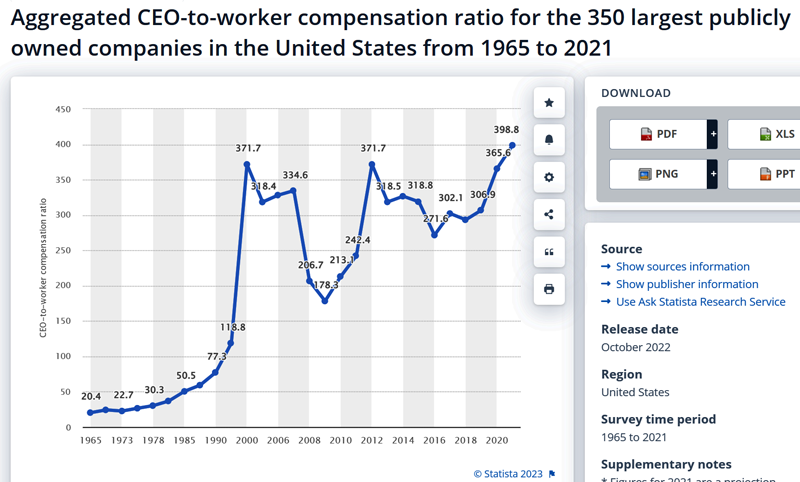Aislin lays out the threat Tik Tok poses: As a Chinese-owned company, there’s a strong suspicion that the Chinese government could tap into user accounts.
It’s a pretty wide reach, according to Statista, though I note their chart of the top audiences doesn’t include Aislin’s native Canada. (8.3 million, out of a total population of 38 million.)
It’s one helluva rich site for advertisers, as this analysis suggests, particularly since the bulk of its users are in the 18-24 demographic. When I was in TV advertising, the prime target was 18-35, but cutting out that older decade wouldn’t have diminished our desire for an audience like this.
Advertising isn’t spying, but, then again, we all see ads online that are targeted because of things in which we’ve shown an interest. It’s certainly not impossible to track what a user has clicked on and deliver related ads to that account, which suggests an ability to track other stuff as well.
Which makes young people on Tik Tok puppets of the Chinese government, Ed Hall says.
Perhaps. But consider our
Juxtaposition of the Day
Chappatte and Jones simultaneously spotted the flaw in thinking China would actually listen in, and they’re certainly accurate that the bulk of chatter on YouTube is not going to reveal any state secrets.
Which I embrace as part of my oft-stated Haystack Defense, that the more information Big Brother gathers, the harder it is for him to find the parts he wants.
However, that doesn’t mean the nail that sticks up couldn’t get hammered. It seems quite possible to identify particular intelligence targets to follow, and I’m all in favor of moves to ban Tik Tok from governmental computers and phones.
It might also be a good thing to write into employment contracts at high security industries. If you’re working at Los Alamos, you probably shouldn’t have Tik Tok on your computer at work or on any smartphone or tablet they provide.
But you might want to limit what employees connect to at work anyway. There are some professions — reporters, particularly — who need to keep an eye on social media and who have a wide net of people they need to both monitor and to connect with.
I suspect more businesses could designate a very small, select set of apps with which they communicate.
The danger isn’t where you might think. At one paper where I worked, our bugs weren’t coming in from reporters looking stuff up for stories, but from bored customer service reps during slack time in circulation, playing games and sharing funny videos.
National security aside, Pat Bagley points out that the online universe — not just Tik Tok — poses a mass of problems for young people as they develop their self-images and find their place in the world.
There are proposals to raise the minimum age for signing on to the various services, but we’ve seen how ineffective that is at the current COPPA age of 13. Not only do younger kids find ways around it, but there are parents who cooperate in helping their kids access sites they’re not supposed to.
The idea of raising it to 16 or 18 is well-intended, but unenforceable, and I say that as someone who was accessing tobacco and alcohol regularly at 13.
Though it is kind of funny thinking of kids hanging around outside the library, going, “Hey Mister, I lost my password. Can you sign me in?”
Bottom line is that social media poses a significant hazard to young people, and it might perhaps help to get a few more people in positions of influence who understand how the Intertubes work.
It might also help to get a few more people in positions of influence who understand how young people work, but they’re coming.
Besides, as Jen Sorensen makes clear, young people aren’t the only ones being led astray. And while “they all do it” is a fool’s argument, it’s worth wondering what we’d find out if Congressional emails were suddenly revealed the way Fox News’s were.
Pearls Before Swine (AMS) explains a large part of the problem, and whether politicians accept an actual quid pro quo from donors or simply believe what lobbyists tell them is irrelevant if they’re voting in line with what major donors want.
Bear in mind that MTG, when she proposed secession, said that “Everyone I talk to says this.” She was probably being honest, because, besides the Fox bubble of the moment, there is the eternal bubble that politicians live in, in which people who agree with them fawn over them and people who disagree tend to either stay away or to shout in their faces and be dismissed as loonies.
Getting money out of campaigning would at least poke holes in that latter bubble, if not burst it entirely.
Meanwhile, it’s somewhat comforting to know that, according to Jeremy Banx, it’s obvious to others that we have an issue with gullible people who live by team loyalty instead of common sense. And who vote.
So anyway, it’s Women’s History Month, and Ann Telnaes cautions us to recognize that it is not supposed to be “Women Are History Month” despite the fact that the McConnell Court seems determined to put women back where they were when America was Great.
Not that anybody is also working to bring back the one wage-earner family economy so women could even have the choice to stay home like they used to.
There’s no movement, for instance, to Make America Great Again by having CEOs earn 20.4 times what their workers made, as they did in 1965.
But it’s Women’s History Month, so we’ll run a few features about women who did something or other, just as last month we ran features about Black folks who did something or other.
And, if SCOTUS can’t manage to put all the liberation toothpaste back in the tube, we can at least pressure the unethical chickenshits at Walgreen’s to stop serving women’s needs.
The important thing, Chip Bok (Creators) insists, is to maintain a level of hostility, division and what’s-in-it-for-me.
I’m a renter, so I want a rebate on my taxes for supporting the fire department on accounta it’s not my house.
The important thing is to make sure nobody says, “It’s good for the country. It’s good for our future.”
Because that’s socialism.















Is “As a Chinese-owned country” a typo, or a comment on who holds mist of our national debt?
Fixed, thanks. The brain she no work so well at 6 am.
“Which I embrace as part of my oft-stated Haystack Defense, that the more information Big Brother gathers, the harder it is for him to find the parts he wants.”
Unfortunately with AI this is no longer the case. Just watch everything and the algorithms will pull out what is wanted.
What frightens me more than targeted ads for things I show interest in when on the computer is getting targeted ads that for things that I don’t use the computer to look at but get after I’m discussing the subject verbally with someone in a room where a computer is on but is idle…
I don’t deal in state secrets or so forth, and I’m not convinced as an end user that a Chinese company illegitimately accessing metadata and paradata is a whole lot worse than a non-Chinese company like Facebook doing so. I don’t especially trust either of them.
If you give me six lines written by the hand of the most honest of men, I will find something in them which will hang him.
Cardinal Richelieu
Then you’re going to love this.
Tik-tok